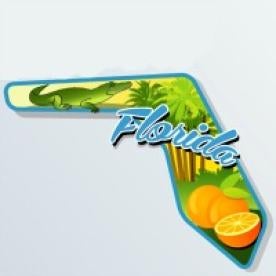COVID-19 has posed new challenges for community living. Condominiums, HOAs, and Cooperatives are confronting how to prevent the spread of the virus within their communities. When faced with residents who had tested positive for this disease, two high-rise condominiums in Miami, the Marinablue and the Brickell Bay Club, shut down use of common facilities and limited access to their buildings to prevent transmission of the disease. Actions like these raised questions within condominium communities and other communities relying on a statutory framework for operation regarding the associations’ authority to take such measures to prevent or reduce the spread of COVID-19. The current statutory framework appeared to limit the associations’ authority to restrict or prohibit access to common facilities only in the case of physical damage to the improvements in the community.
The Department of Business and Professional Regulation (DBPR) responded to these issues with Emergency Order 2020-04 on Friday, March 27th. [1] Citing the authority delegated to State agencies by Governor DeSantis [2] to suspend provisions of regulatory statutes that would “prevent, hinder or delay” necessary action in response to COVID-19, the DBPR suspended limitations in the Condominium Act, [3] the Cooperatives Act, [4] and the HOA Act, [5] which required the emergency powers of such associations’ be taken only in “response to damage caused by an event for which a state of emergency is declared.”
Current statutory emergency provisions under Florida statutes [6] empower a community association to close pools, gyms, and other amenities. These statutes also provide a source of authority for associations to limit access to guests, invitees, or even unit owners, [7] reschedule board meetings, relax notice requirements, and contract on behalf of the community. [8] These emergency provisions, however, require physical damage to the community as a trigger for their operation. The statutory provisions were expansively re-interpreted by the DBPR to eliminate the necessity for physical damage to invoke their operation.
Unsurprisingly, these emergency powers statutes were adopted in response to an especially active hurricane season in the mid-2000s when need arose for associations to take certain independent actions to preserve and protect the property, particularly when vacant units were facing serious structural issues, mold, and other damage. In light of this context, the DBPR’s Order may not be totally consistent with the original intent of the subject emergency powers statutes but without such authority the associations would be powerless to address the current crisis. Like much else that has arisen during the unprecedented pandemic being fought worldwide, the DBPR’s Order is an attempt to use the authority and tools available to best address this crisis.
[1]Emergency Order 2020-04, Florida Department of Business and Professional Regulation (March 27, 2020).
[2]Emergency Order 20-52, State of Florida Office of the Governor, (March 9, 2020).
[3]Fla. Stat. 718.1265(1).
[4]Fla. Stat. 719.182(1).
[5]Fla. Stat. 720.316(1).
[6]Fla. Stat. 718.1265 (1)(h)-(i).
[7]Fla. Stat. 718.1265(1)(g).
[8]E.g., 718.1265(1)(a), (b), (e), (j), (k) & (m).





 i
i


